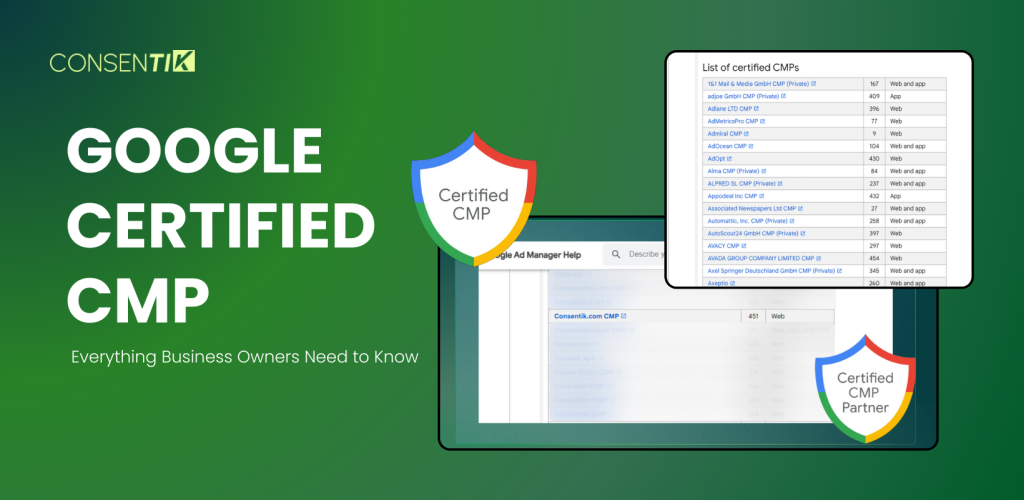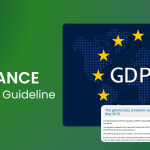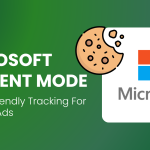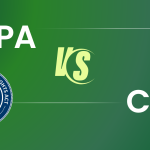When Google mandated certified CMPs last year, website owners faced a clear ultimatum: implement a compliant consent platform or lose access to millions of European customers. Sites that quickly adopted maintained revenue, while others saw EU ad impressions disappear after January 16. This shift represents the biggest change in online advertising since GDPR. But many owners wonder: What’s a Google-certified CMP? Why is it required? How do I choose the right one?
Whether you run a small blog with AdSense or manage enterprise websites, this guide will simplify Google’s certification program, explain its importance for your revenue, and help you select a solution confidently. Let’s dive in!
What Is a Google-Certified CMP?
A Google-Certified CMP is a consent tool that Google has tested and approved. These tools show cookie consent banners on websites and record visitor choices. Google checks that each certified CMP meets their standards for getting proper user consent and handling privacy correctly.
To earn certification, the CMP must work properly with Google’s ad systems and follow privacy rules like the IAB Transparency and Consent Framework.
So why is Google-certified CMP a must-have? From January 16, 2024, any website serving Google ads to users in the European Economic Area (EEA) or UK must use a Google-certified CMP. This isn’t optional – without it, your Google ads will stop showing to European users, cutting into your revenue.
But there’s good news: implementing a certified CMP not only keeps your ads running but also helps ensure you’re complying with privacy laws like GDPR. It’s a practical solution to a complex problem.
Why Choose a Google-Certified CMP?
Choosing a Google-certified Consent Management Platform (CMP) offers several key advantages, such as:
Help Meet Digital Markets Act (DMA) Requirements
Google’s approved consent tools do double duty – they keep you legal with ad rules while supporting Digital Markets Act requirements. However, it’s important to note that a Google-certified CMP does not automatically guarantee full DMA compliance.
TCF 2.2 covers specific ad consent stuff, but DMA casts a wider net over privacy rules. The bonus? These consent tools make your site more transparent about data use, which the DMA demands anyway. Two birds, one stone.
These platforms face scrutiny and regulation under the DMA.
Stay Compliant and Avoid Hefty Fines
Privacy regulations like GDPR require websites to get proper consent before collecting personal data. A Google-certified CMP helps you meet these requirements by giving users clear options to accept, reject, or customize their consent preferences.
Without a good CMP, you risk significant fines – up to €20 million or 4% of your global revenue under GDPR. The certified status means the CMP meets industry standards for consent collection, helping you stay on the right side of the law.
However, while a CMP ensures that user consent is collected properly, it does not eliminate all GDPR risks. Other GDPR violations—such as mishandling user data—can still result in penalties.
Keep Your Google Ads Running
This is simple but crucial: if you want to continue showing personalized Google ads to European users, you need a certified CMP. No certified CMP means no Google ads in those regions, which directly impacts your bottom line.
Better Data Even When Users Opt Out
One major advantage of Google-certified CMPs is their integration with Google Consent Mode. This clever system adjusts how Google tags work based on user consent.
Even when someone declines cookies, Consent Mode switches to a privacy-safe mode that can still model conversions and provide useful aggregate data. This helps maintain effective measurement and optimization for your marketing – but only works properly with a certified CMP.
Build Trust Through Transparency
A good CMP doesn’t just tick regulatory boxes – it builds trust with your audience. By giving visitors clear information and straightforward choices about data collection, you show that you respect their privacy preferences.
This transparency can enhance your brand reputation. Users who see a familiar, standardized consent interface feel more comfortable, knowing their rights are being respected.
Future-Proof Your Compliance
CMPs on Google’s certified list are regularly updated to stay current with new laws and Google’s requirements. By choosing a certified solution, you’re more likely to get ongoing support and updates that keep pace with the changing privacy landscape.
Many certified CMPs offer easy implementation through plugins or tag managers, letting you focus on your business while the CMP handles the technical aspects of consent management.
How to Choose the Right Google-Certified CMP?
With dozens of options on the Google Certified CMP list, how do you pick the best one for your business? Here’s what to consider:
Start with Google’s Official List
Always begin by checking Google’s verified list of certified CMPs. This ensures any provider you consider has passed Google’s certification tests and is approved to work with their ad ecosystem.
If you’re already using a CMP that isn’t certified, ask if they plan to get certified – otherwise, you’ll need to switch.
Understand Your Specific Needs
Every business is different. Consider:
- Your website traffic volume
- Which regions do your users come from
- What types of tracking do you use
- Whether you need multi-language support
- If you have both websites and mobile apps
A small blog with mostly Google AdSense might need just a simple CMP, while an enterprise with multiple ad partners would require more robust features.
Check Compatibility and Integration
Your CMP must work well with your existing systems. Verify it integrates with:
- Google products (AdSense, Ad Manager, Analytics, Tag Manager)
- Your website platform or CMS (WordPress, Shopify, etc.)
- Other advertising partners that you work with
Many CMPs offer plugins or one-click setups for popular platforms, making implementation painless. The right CMP should fit into your site with minimal custom coding.
Compare Features and Customization
Look for flexibility in how the consent banner appears and functions:
- Can you customize colors and text to match your brand?
- Are users able to easily update preferences later?
- Can you configure different levels of consent (necessary, analytics, marketing)?
- Does it offer A/B testing to optimize consent rates?
The best CMP adapts to your needs rather than forcing you into a one-size-fits-all approach.
Consider Security and Data Handling
Since CMPs deal with user consent data, security matters. A good CMP should:
- Securely store consent records
- Use encryption for data protection
- Automatically scan and block tracking until consent is given
- Honor user choices consistently across page loads
These features ensure your site genuinely respects privacy by design.
Look at Support and Pricing
Finally, consider practical factors like:
- The vendor’s reputation and support availability
- Pricing model (free tier, monthly subscription, per-user pricing)
- Scalability as your traffic grows
- Reviews from other business owners
Many CMPs offer free trials or basic free plans for smaller sites, making it easier to test before committing.
Why should you use Consentik CMP?
Tired of privacy tools that need a law degree to understand? Consentik has the certifications of Google-certified and IAB TCF 2.2-approved, but without the complexity that makes most privacy tools a pain to use.
What makes Consentik stand out?
✔ Properly certified – They’ve done the paperwork so you don’t have to. With IAB TCF 2.2 approval, your consent process meets GDPR standards right out of the box.
✔ Spots trouble quickly – Their scanner tool checks your website and flags privacy issues with straightforward fixes anyone can follow.
✔ Looks professional – Customize consent banners to match your site colors and speak your customers’ language, making the consent experience less annoying.
✔ Keeps analytics working – Works with Google Consent Mode V2, so you still get useful data even when visitors say no to cookies.
✔ Setup in minutes – No developers needed. Just plug it into Google Tag Manager or your website platform and you’re good to go.
Consentik keeps your site compliant, protects ad revenue, and ensures smooth data tracking—all without the hassle. Perfect for businesses that want a smart, effortless solution.
Google-Certified CMP FAQs
What is a Google-certified CMP?
A Google-certified CMP is a Google-approved tool that helps websites manage user consent for data collection. It ensures compliance with privacy laws like GDPR and follows Google’s EU User Consent Policy. Using a certified CMP is required for sites running Google Ads, AdSense, or AdMob in Europe and the UK.
Does Google offer a CMP?
No, Google does not provide its own CMP. Instead, it requires websites to use a CMP from its Google-certified CMP list, which includes third-party solutions that meet Google’s privacy and consent requirements.
What is CMP Google Analytics?
A CMP for Google Analytics is a consent tool that ensures Google Analytics only tracks users who give consent. When integrated, it prevents cookies and tracking from loading unless the user agrees, keeping your analytics data privacy-compliant.
What is a CMP for Google AdSense?
A CMP for Google AdSense is a consent management tool that allows websites to collect valid user consent before showing ads. This is required in Europe and the UK under GDPR and Google’s policies. Without a CMP, AdSense ads won’t be displayed to users in regulated regions.
What is a CMP under the GDPR?
A CMP under GDPR (General Data Protection Regulation) is a tool that collects, manages, and stores user consent before tracking personal data. It allows users to accept, reject, or customize what data they share, ensuring websites legally comply with GDPR’s strict consent rules.
Wrap-Up
Adopting a Google-certified CMP is now essential for businesses using Google ads in Europe. While it might seem like just another compliance hurdle, the right CMP can actually enhance your relationship with users through improved transparency.
By choosing a CMP that fits your needs and budget, you can ensure your ads keep running while building trust with your audience. This proactive approach to privacy not only keeps you compliant today but better positions your business for whatever privacy requirements emerge tomorrow.
Remember, the most important step is getting started. Even a basic certified CMP implementation is better than none at all when it comes to protecting both your ad revenue and your compliance standing.















